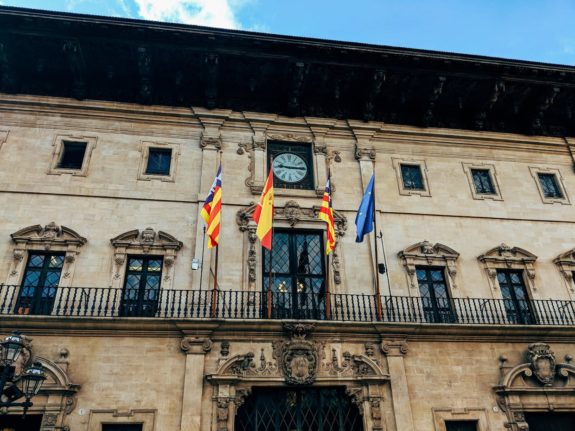The padrón certificate is essentially proof to show where you are living. You apply for it at your Town Hall or ayuntamiento – and they use it to find how many people are living in the area and what their ages are, kind of like a census.
The number of people living in each area will depend on how much money your local Town Hall will receive from the government, which they can use for local services such as schools, health centres, parks and police officers.
If you are registered as a resident in Spain, you will need to apply for your padrón certificate within your first three months of living here.
READ ALSO – Padrón: 16 things you should know about Spain’s town hall registration
Besides being a census and used for local funds, you will need your certificate to carry out certain processes. These include registering at your local health centre, getting a Spanish driving licence, applying for a local library card and getting a pensioner’s card.
If you move house in Spain, you will be required to re-register with your new Town Hall and get a certificate with your new address. Also for each bureaucratic process above, you may need to re-register as your certificate should be no more than three months old.
The padrón is designed for residents, meaning people who permanently live in Spain. If you do have to register for it for any reason as a non-resident, you should de-register soon afterwards. Likewise, if you’re planning on leaving Spain and will no longer be living here, you should also de-register.
READ ALSO: Should non-residents in Spain register on the padrón?
Exactly how and when should you de-register?
In Spanish de-registering is called dar de baja en el padrón.
There are several reasons you may need to de-register such as withdrawing due to improper registration if you signed up as a non-resident or the fact that you’re leaving the country.
Note, you will not have to de-register if you’re simply changing addresses and registering elsewhere with a different town hall in Spain. In this case, your town hall will be automatically notified.
The de-registration process may also be carried out at the request of family members and people residing at the same address upon presentation of a death certificate to show a deceased person is no longer living there.
READ ALSO: What Brits in Spain need to know if they move back to the UK post-Brexit
There are two ways to de-register, either online or in person at your local town hall. If you do it in person you will likely have to make an appointment or cita previa first.
Most town halls have online forms available on their websites. They may have one form in which you state your reason for de-registering or separate forms for different reasons. It’s also likely that you’ll need a digital certificate to do it online.
In order to find the process for your specific town hall, google ‘darse de baja del padrón‘ and then the name of your municipality.
Whether you send in your application form online or go in person you will likely have to go in person anyway to present several original documents.
These include your residency documents such as TIE or EU green card and passport, if you have them.
You will also need to show proof that you’re leaving Spain to live elsewhere or that you registered when you shouldn’t have done.
This could include your visas in order to go and live in another country, your job contract from another country, rental agreement or deeds for a property abroad, plus one-way flights. You can also prove that you’ve cancelled your residency.
If you were improperly registered because you weren’t permanently living in Spain you must show documents to prove that you weren’t a resident here. This may include residency documents from abroad or a tax certificate to show you are registered elsewhere.



 Please whitelist us to continue reading.
Please whitelist us to continue reading.
Member comments